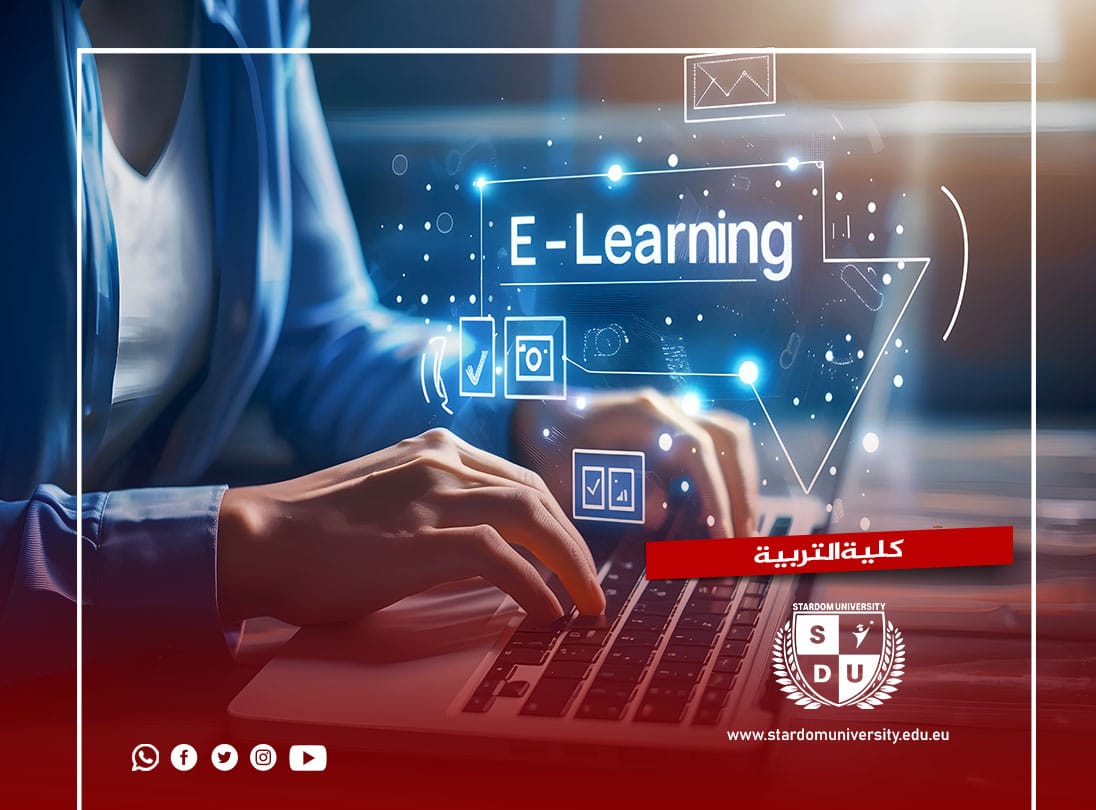
The Faculty of Education serves as a cornerstone in preparing teachers and developing modern teaching strategies. With the advancement of technology in education, e-learning has become one of the essential pillars that education colleges rely on to improve and expand the quality of education. In this article, we will explore the role of e-learning in education colleges, how it can enhance the effectiveness of the educational process, and the challenges it may face.
1- Role of E-Learning in Education Colleges
a. Improving Teaching and Learning Methods E-learning enables education colleges to utilize innovative teaching methods such as interactive online lessons, virtual simulations, and collaborative learning platforms. These methods help make the educational process more engaging and interactive for students, contributing to an improved learning experience and a better understanding of complex concepts. By using tools like educational videos and online quizzes, teachers can present diverse study materials that cater to various learning styles.
b. Access to Diverse Educational Resources E-learning provides students and teachers with access to a variety of educational resources, including scholarly articles, online training courses, and recorded lectures. These resources enrich the curriculum and broaden knowledge horizons, promoting self-directed learning and providing additional sources to support academic study.
2- Benefits of E-Learning in Teacher Preparation
a. Developing Technological Skills By integrating e-learning into education college programs, students become familiar with modern educational tools and techniques, which helps in developing their technological skills. These skills are essential for teachers in the digital age, where they need to effectively use technology in classrooms to engage and motivate students.
b. Flexibility in Training and Learning E-learning offers greater flexibility in scheduling lessons and training, allowing students to interact with educational content at times that suit them. This flexibility improves time management and enables students to balance their studies with personal or professional commitments. Additionally, teachers can access continuous professional training online, helping them stay updated with the latest developments in the field of education.
3- Challenges Facing E-Learning in Education Colleges
a. Access and Infrastructure Issues Despite the significant benefits of e-learning, challenges related to access to technology and infrastructure exist. In some areas, consistent internet access may not be available, or devices may be insufficient, hindering the effective use of e-learning. It is essential for education colleges to provide the necessary support to ensure all students can access digital educational resources.
b. Interaction and Communication Interaction and communication between students and teachers may be less effective in e-learning environments compared to traditional education. This can impact the quality of education and the learning experience, as success in e-learning relies on students and teachers being able to use communication tools effectively. Education colleges must develop interactive teaching strategies to enhance communication and compensate for the lack of personal interaction.
Conclusion
E-learning holds great potential for improving the quality and expanding the scope of education in colleges of education. By employing innovative teaching methods and providing diverse educational resources, e-learning can enhance the effectiveness of the educational process and develop the skills of both students and teachers. However, education colleges must address challenges related to access and interaction to ensure all students benefit from this modern technology. By balancing traditional education with digital technology, an integrated educational experience can be achieved that meets students' needs and prepares them for a successful educational future.